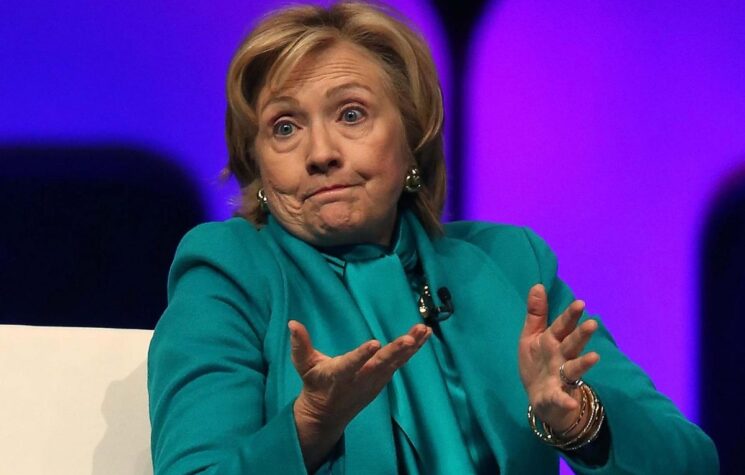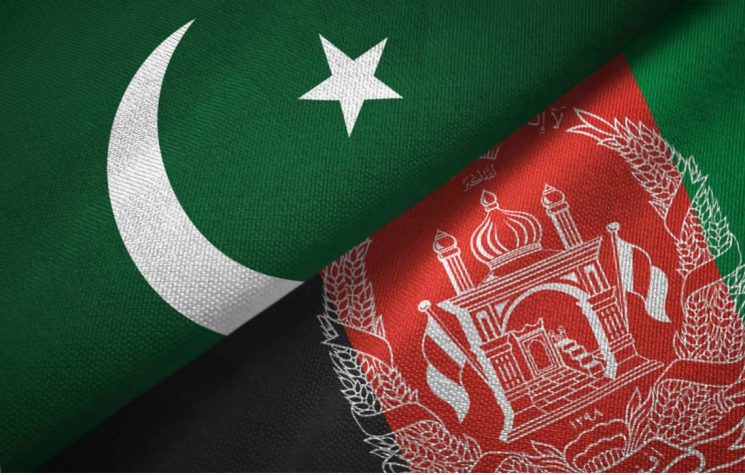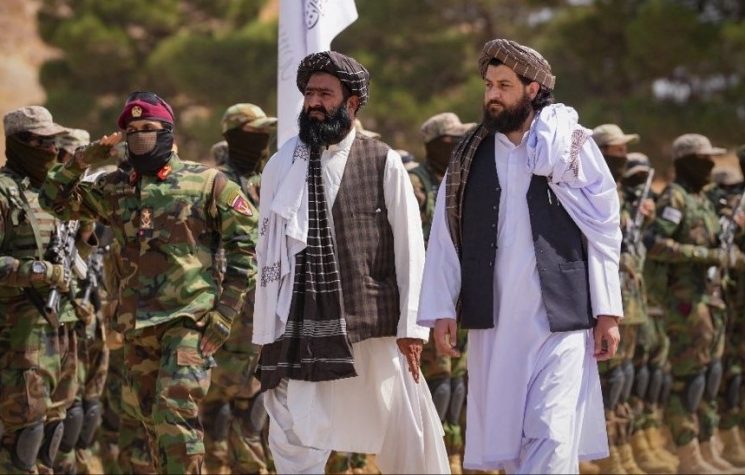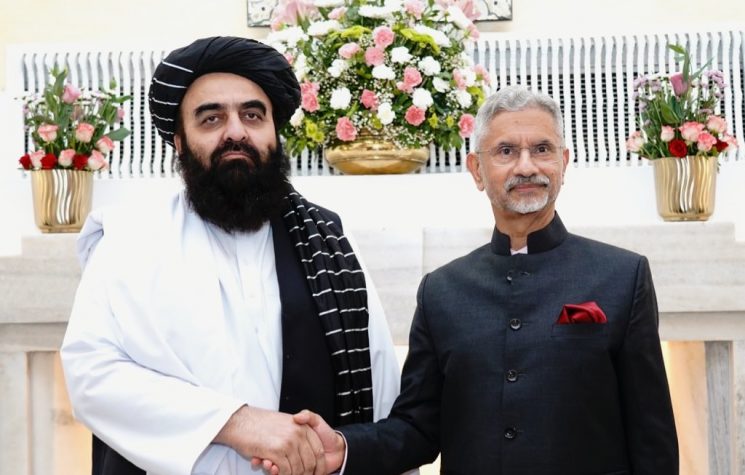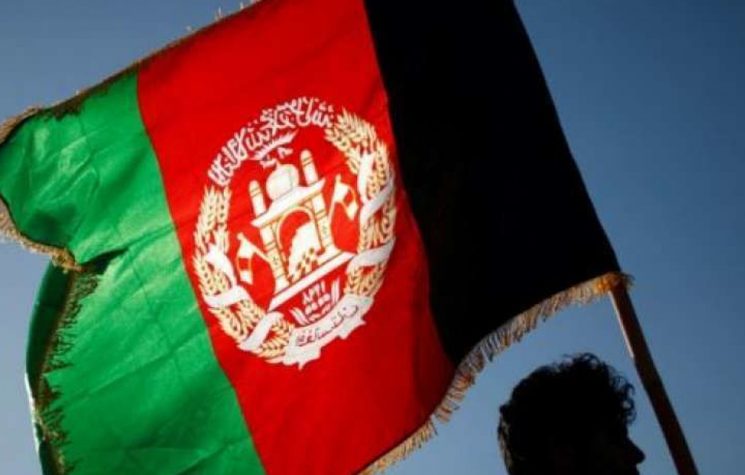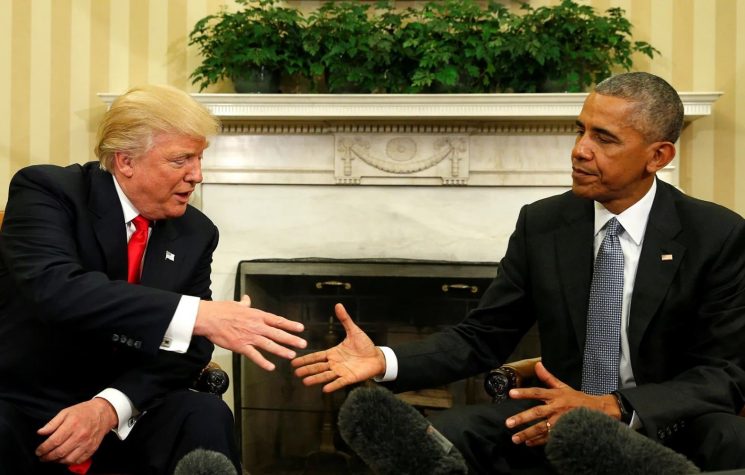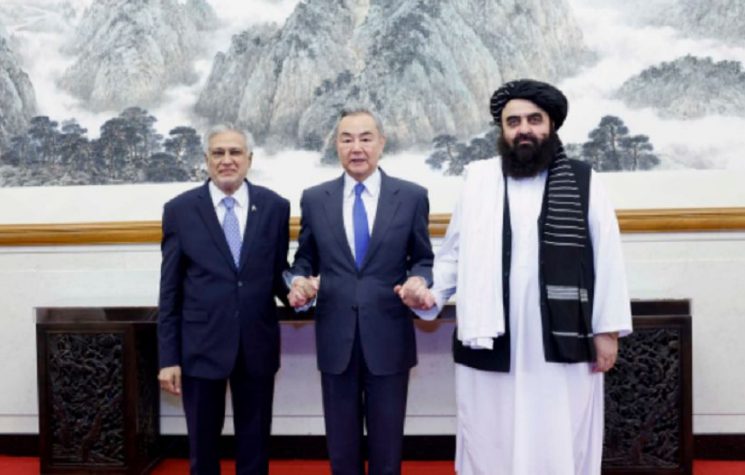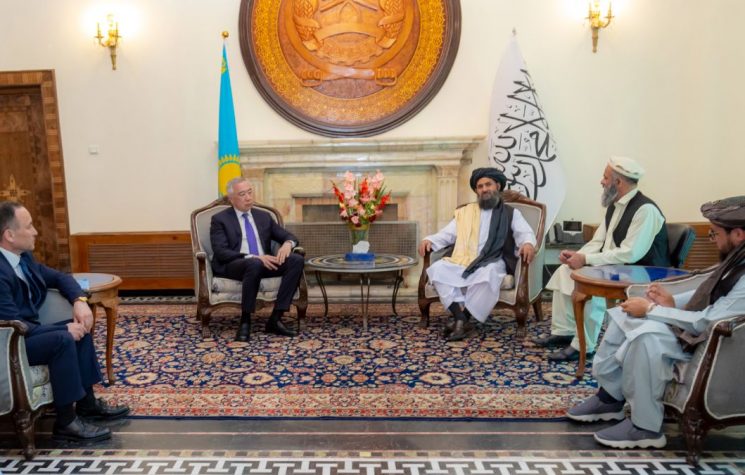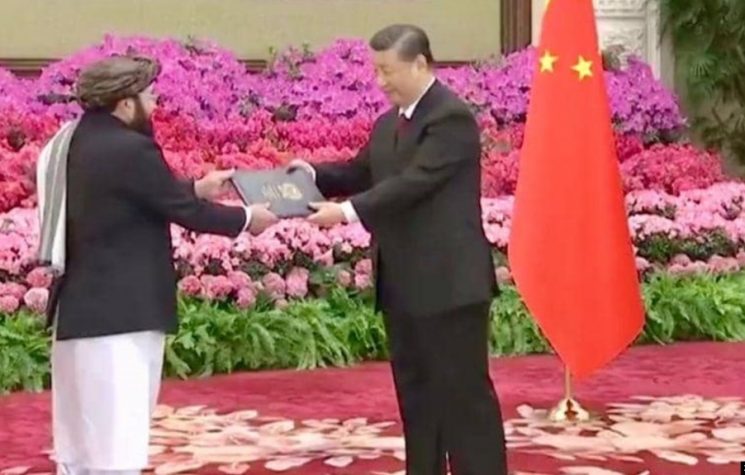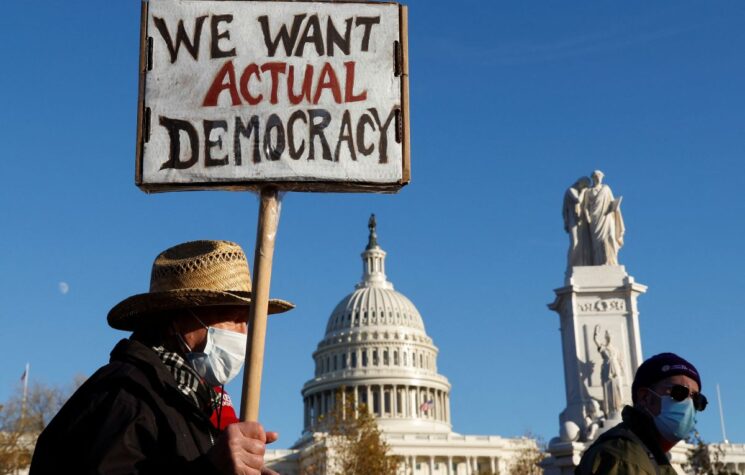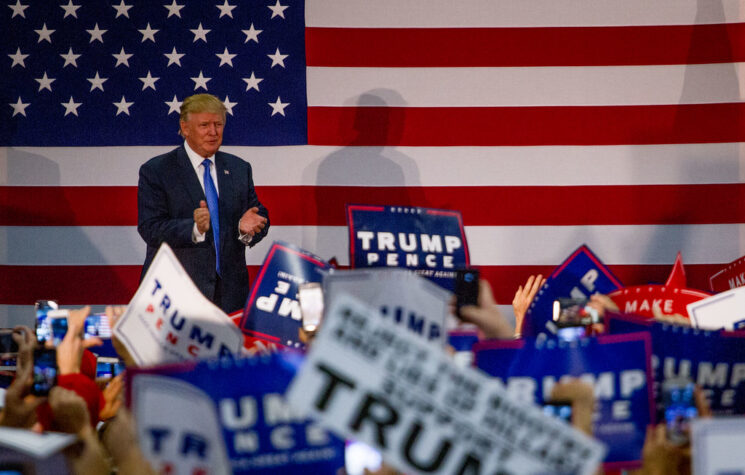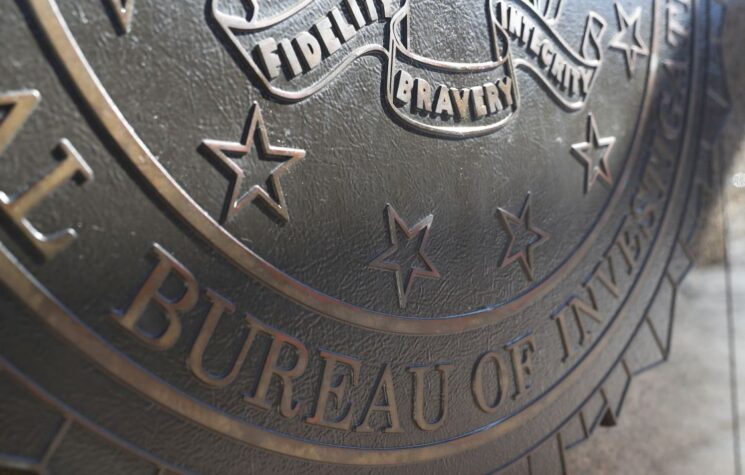When truth is marginalized, the fringe is the only place where it’s to be found.
So it looks like Russia didn’t pay the Taliban to kill U.S. soldiers after all.
Last summer, the New York Times announced in a front-page story that “American intelligence officials have concluded that a Russian military intelligence unit secretly offered bounties to Taliban-linked militants killing coalition forces in Afghanistan – including targeting American troops.”
The article rang with certainty. “Some officials have theorized that the Russians may be seeking revenge on NATO forces for a 2018 battle in Syria in which the American military killed several hundred pro-Syrian forces, including numerous Russian mercenaries,” it said. The operation, it went on, appears to be “the handiwork of Unit 29155, an arm of Russia’s military intelligence agency, known widely as the GRU. … Western intelligence officials say the unit, which has operated for more than a decade, has been charged by the Kremlin with carrying out a campaign to destabilize the West through subversion, sabotage and assassination.”
This was red meat for congressional Democrats eager to tar Trump with whatever brush was at hand. Nancy Pelosi issued a call to arms, declaring: “Congress and the country need answers now.” Senate Democratic leader Chuck Schumer adopted a tone of mock disbelief: “Russia gives bounties to kill Americans and the administration does nothing? Nothing? Donald Trump, you’re not being a very strong president here as usual.” Joe Biden called the report “horrifying” and said “there is no bottom to the depth of Vladimir Putin and the Kremlin’s depravity if it’s true.”
Except that it isn’t true now that we know that U.S. intelligence agencies, according to the White House, view the report with only “low to moderate confidence” – which, in layman’s language, either means that it could be true – kind of, sort of, maybe – or that it’s pure baloney. In any event, it’s hardly reason to accus a sitting president of “a betrayal of every single American family with a loved one serving in Afghanistan or anywhere overseas,” as Biden did the day after the story broke.
Charlie Savage, whose byline appears on a number of last summer’s pieces, offered a series of mealy-mouthed excuses for how he and his fellow Times reporters managed to get it so wrong. “Former intelligence officials … have noted that it is rare in the murky world of intelligence to have courtroom levels of proof beyond a reasonable doubt about what an adversary is covertly doing,” he said. He described the original intelligence findings as “muddied” because a key figure in the alleged plot “had fled to Russia – possibly while using a passport linked to a Russian spy agency.”
So it isn’t the Times’s or the CIA’s fault, you see – it’s merely a hazard of the trade. But isn’t it’s curious how words like “murky” and “muddied” never cropped up last summer when the Times was busily egging Democrats on with stories charging that the bounties had led to “at least one U.S. troop death” or maybe even three? “Father of Slain Marine Finds Heartbreak Anew in Possible Russian Bounty,” a Times headline declared. “American officials intercepted electronic data showing large financial transfers from a bank account controlled by Russia’s military intelligence agency to a Taliban-linked account,” another claimed.
All of which was nonsense, as is now clear. Yet not only has the Times failed to apologize but White House spokesman Jen Psaki managed to spin the story last week so that it’s still Moscow’s fault and “there are [still] questions to be answered by the Russian government.”
Although the corporate media dutifully echoed the Times, a few skeptics did get it right. Ray McGovern, an ex-CIA official who now heads a group calling itself Veteran Intelligence Professionals for Sanity, called the story “dubious” right off the bat. Scott Ritter, the ex-UN weapons inspector who blew the cover off charges that Saddam Hussein’s Iraq was bristling with weapons of mass destruction, wrote that “there is no corroboration, nothing that would allow this raw ‘intelligence’ to be turned into a product worthy of the name.” Caitlin Johnstone, who covers U.S. politics from Australia yet still does a better job of it than most stateside reporters, denounced the entire affair as a “malignant psyop,” adding: “It really is funny how the most influential news outlets in the western world will uncritically parrot whatever they’re told to say by the most powerful and depraved intelligence agencies on the planet, and then turn around and tell you without a hint of self-awareness that Russia and China are bad because they have state media.”
Then there’s someone named Dan Lazare who had pointed out a few obvious facts in Strategic Culture a few days after the supposed Times scoop came out:
“But the report doesn’t even make sense. Not only have the Taliban been at war with the United States since 2001, they’re winning. So why should Russia pay them to do what they’ve been happily doing on their own for close to two decades? Contrary to what the Times wants us to believe, there’s no evidence that Russia backs the Taliban or wants the U.S. to leave with its tail between its legs. Quite the opposite as a quick glance at a map will attest. Given that Afghanistan abuts the former Soviet republics of Turkmenistan, Uzbekistan, and Kyrgyzstan and is less than a thousand miles from Chechnya, where Russia fought a brutal war against Sunni Islamist separatists in 1999-2000, the last thing it wants is a Muslim fundamentalist republic in the heart of Central Asia.”
The fact that the New York doesn’t even consider” the broad geopolitical backdrop, the article added, “makes its reporting seem all the more dubious” – words that are as appropriate now as they were then.
None of this matters, however, because Strategic Culture, it turns out, is “controlled by Russian intelligence” and publishes “fringe voices and conspiracy theories.” Yes, that’s what the Times says, and its source, as usual, is nothing more than unnamed U.S. government sources whispering in its ear. But if Strategic Culture is so marginal, how is it that it got the story right while the Times’s own conspiracy tales turned out to be false?
When truth is marginalized, the fringe is the only place where it’s to be found.












